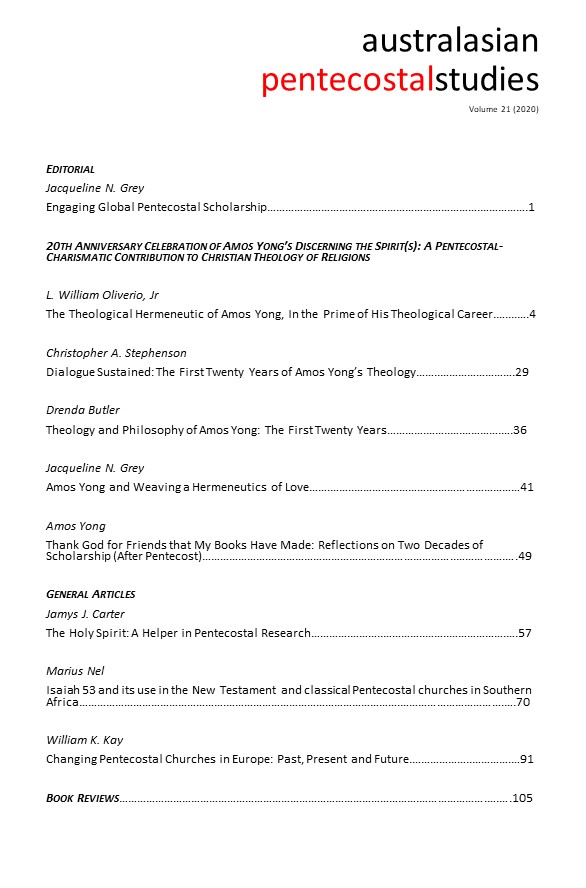The Theological Hermeneutic of Amos Yong, In the Prime of His Theological Career
Abstract
There is no more influential Pentecostal theologian in the academic world today than Amos Yong. The breadth of his influence is now in full bloom, and the depth of his contributions have left a wake in which many have only begun to swim. This article identifies and explains central aspects of his theological approach to interpreting human life and all of reality, that is, his theological hermeneutic, at a moment where Yong continues to produce his theological work in the prime of his career. While doing so, the essay adds a comparative twist by relating Yong’s project to two of the most influential thinkers in the Catholic theological tradition, the twentieth century German Jesuit theologian Karl Rahner, and the great doctor, the thirteenth century Dominican Thomas Aquinas. The breadth of Yong’s contribution to global Pentecostal theology now deserves to be treated analogously to those who have made orienting contributions to other Christian traditions. While it is entirely premature to make long-term historic judgments on Yong’s influence, as that is in the midst of becoming and the future unknowable, this comparison might be considered more along the lines of a midterm assessment of that influence, while he remains in the prime of his theological career.
Downloads
Published
How to Cite
Issue
Section
License
Authors who publish with this journal agree to the following terms:
- Authors retain copyright and grant the journal right of first publication with the work simultaneously licensed under a Creative Commons Attribution License that allows others to share the work with an acknowledgement of the work's authorship and initial publication in this journal
- Authors are able to enter into separate, additional contractual arrangements for the non-exclusive distribution of the journal's published version of the work (e.g., post it to an institutional repository or publish it in a book), with an acknowledgement of its initial publication in this journal.
- Authors are permitted and encouraged to post their work online (e.g., in institutional repositories or on their website) prior to and during the submission process, as it can lead to productive exchanges, as well as earlier and greater citation of published work (See The Effect of Open Access).


